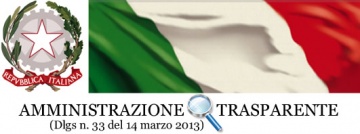A lesson from COVID-19 pandemia to fight cancer metastases- Massimo Zollo, Università degli Studi di Napoli “Federico II”
Abstract: In this presentation I discuss the issue of viral infection as a common mechanism for tumorigenic initiation in solid tumors (TNBC breast cancer and cerebellar cancer). I will address some notions and some of the mechanisms related to metabolic and immuno-metabolic changes along with the response to the regulation of Ca2++ signals during virus propagation (with focus on SARS-Co-V-2). I will describe synergies in viruses (Covid-19-Syncytial and influenza) and in TNBC tumors and pediatric cerebellar tumors (medulloblastoma Gr3) using transgenic mouse models and Functional Genomics technologies with studies with new drugs. The presentation will address one of the challenges of translational research in recent years, namely trying to understand the contribution of the innate and adaptive immune response to activate or inhibit some processes related to viral infections and tumorigenesis, using new immunomodulatory drugs for the regulation of the immune system.
Biography: Born in Naples in 1963, he graduated in Biological Sciences from the University of Naples Federico II, with a focus on Biology. He completed his thesis under Dr. Maria Grazia Persico (CNR-IIGB) and Professor Giorgio Battistuzzi, working on human genetics with a thesis titled "Isolation of the STS Gene (The Human Steroid Sulphatase X-linked Gene Isolation)." After graduating, he gained several experiences in the United States, including at the National Institutes of Health in Bethesda, the Washington School of Medicine in St. Louis, Genentech Inc., and Applied Biosystems Inc.
In the U.S., he contributed to the development of the Human Genome Draft, a paper published in Nature in 2002, of which he is an author. Thanks to this study (which involved over 500 authors), we now know the 22,000 genes that make up the human genome. After returning to Italy, he led the DNA Sequencing team at Tigem-Telethon in Milan and headed a research unit.
In 2000, he returned to Naples, working at Tigem Napoli, where he led a research unit funded by the European Union, focusing on the tumor microenvironment of breast carcinoma metastases and, later, embryonic and brain tumors. Since 2006, he has been a professor of Genetics at the Department of Molecular Medicine and Medical Biotechnology at the University Federico II of Naples, with a research laboratory at Ceinge Advanced Biotechnologies "Franco Salvatore" and an assistant role at the Federico II University Hospital.
In September 2018, he became a full professor of Genetics at the University Federico II of Naples. He holds various research projects funded by PRIN, AIRC, PNRR, and the Ministry of Health. He has authored over 160 papers and six textbooks in the fields of Genetics, Molecular, and Human Genetics, with more than 12,000 citations. Additionally, he holds 16 international patents in the fields of anti-tumor drug development, diagnostic kits, antiviral drugs, and new nutraceutical formulas. He is a member of several Italian and international societies in Neuro-oncology, Cellular and Molecular Biology, and Genetics.
From 2020 to 2023, he served as Scientific Director of the CEINGE Task Force against Covid-19. He was also a research reviewer for the Saint-Antoine Research Centre (CRSA) in Paris, France, from 2018 to 2022. In December 2023, he became CEO of a spin-off from Federico II, "Elysium Cell Bio Ita," which develops antiviral and anti-tumor drugs, diagnostic kits, and new nutraceutical formulations.


